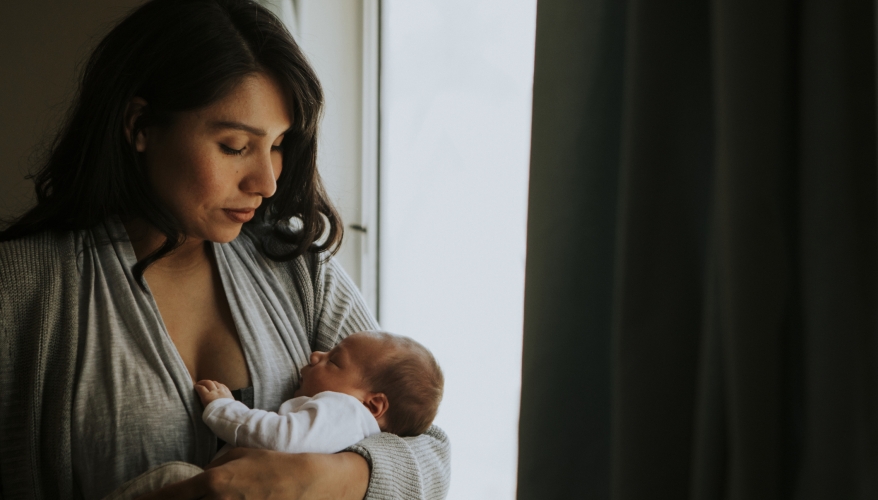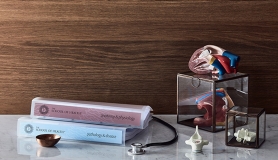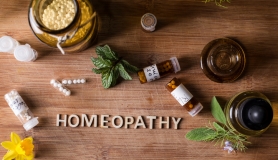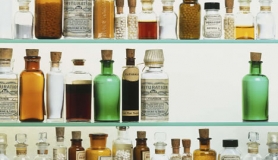As well as her private practice (catherinesmithhomeopath.co.uk) she also works for Helios Homeopathic Pharmacy.
“I completed a BSc in Homeopathy 8 years ago, and have been treating people for all kinds of health issues using homeopathy ever since. I have a particular interest in helping women with postnatal depression, in part because I suffered with it myself after my second child was born, and I found homeopathy invaluable in treating it, and then in preventing a recurrence with my subsequent babies. I have noticed that postnatal depression appears to be more and more common. However, it is hard to tell if more women are suffering, or if it is actually that more women are refusing to suffer in silence and are seeking help. Now, there are many more avenues of support available, and much more awareness that postnatal depression is a common and treatable illness. It can be really difficult to recognise and acknowledge postnatal depression. Certainly when I was struggling with it 18 years ago, I felt terrified of admitting to it, and afraid of what might happen if I sought help. For a long time, I thought it was perfectly normal to be exhausted as a mum of two tiny people, it didn’t occur to me that the irritability and anxiety were also symptoms of the illness. It was only when I heard someone talking about it that I recognised it in myself. I think the media also plays its part, we are bombarded with images of the perfect family, and it can be really tough when the reality turns out to be an exhausting merry go round. However, on the flip side, social media can be a source of support in smaller groups where mums can build relationships with other women who understand what a struggle motherhood can be.
THE CAUSES I think the primary cause of postnatal depression is the inclination of many women to pour their heart and soul into mothering, without recognising that we must take care of our own needs too. I think we constantly underestimate how important it is to take real care of ourselves first. The pressure to maintain an image of a doting, happy, successful mum with a tidy house and wonderful life, is exhausting in itself. We need to create space for women where we can be honest about the challenges of motherhood, and get support when it’s tough without judgement or criticism.
HOW HOMEOPATHY HELPS Homeopathy can help in several ways. The consultation provides a safe space to take openly and honestly about feelings, with total support and confidentiality. I ask questions about what is going on. Sometimes there is a physical reason to be dealt with, such as hormones not settling back into a normal pattern, sometimes there is trauma to deal with from the birth, which can have a profound affect on our experience of mothering, and sometimes it is about helping a mum to see what her own needs are in the midst of the constant care of a baby. I use homeopathic remedies to rebalance the physical and emotional states, sometimes giving remedies to the baby too, if they are fractious or wakeful, which in turn gives mum a bit more peace and rest time.
WHAT TO DO When I talk to women with postnatal depression, I find that the most important thing is to recognise what we achieve as mums. Write a list at the end of the day, of every single thing you have done, from picking up toys, feeding babies, getting a load of washing in the machine. It is amazing how much mums do, even on days when it feels like we have achieved nothing at all. The next task is to accept that taking time out is not only ok, it is vital. We absolutely cannot expect to give our best to our children, if we don’t take time to top ourselves up with what we need. Nobody expects a car to run on an empty tank, and the same applies to taking care of others. We simply cannot do it if we don’t take care of ourselves too. It is so important to seek help. Don’t struggle alone. There are so many other women desperately clinging on through the rollercoaster of motherhood… if you admit to your struggles, you will open the conversation for others to share their challenges too, and then you can support each other. Take one day at a time, one task at a time on the difficult days, and trust that it WILL get better. For women who have suffered from postnatal depression, the spectre of a recurrence can be a huge shadow over a subsequent pregnancy. However, forewarned is forearmed. Knowing that you are susceptible to postnatal depression means you can put protective measures in place before it strikes, to ensure that you avoid the pressures and situations that might trigger it. After recovering from a previous experience, it can be much easier to see what was going on last time, and then to plan time for self care right from the start. My experience was transformed by the support of my homeopath and the homeopathic remedies. Having been terrified of a recurrence during my 3rd pregnancy, using homeopathy and a supportive network of friends and family, I had no symptoms at all after my 3rd and 4th babies. The experience was so profound that it inspired me to train as a homeopath, in the hope that I could help other women in the same way.”







